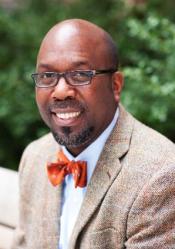Measuring financial well-being in cancer prevention research: Results from the Money-Health Connection Study

Dr. Reginald Tucker-Seeley joined the faculty at the University of Southern California (USC) Leonard Davis School of Gerontology in June 2017. Prior to joining USC, Dr. Tucker-Seeley was an Assistant Professor at the Dana-Farber Cancer Institute (DFCI) and the Harvard T.H. Chan School of Public Health (HSPH). He completed master and doctoral degrees at HSPH and a postdoctoral fellowship in cancer prevention and control at HSPH and DFCI.
Dr. Tucker-Seeley’s research focuses primarily on social determinants of health, such as the association between the neighborhood environment and health behavior; and on individual-level socioeconomic determinants of multi-morbidity, mortality, self-rated health, and health self-efficacy. His current work focuses on financial well-being across the cancer continuum, from prevention to end-of-life care. He has received R21 and K01 grants from the National Cancer Institute (NCI) to develop measures of financial well-being at two points along the cancer continuum: prevention and following diagnosis. He was also funded by the Academy Health/Aetna Foundation Scholars in Residence Fellowship Program to develop measures of neighborhood economic well-being.
Dr. Tucker-Seeley’s research has been published in journals such as the American Journal of Public Health, Preventive Medicine, Journal of National Cancer Institute, Cancer Causes and Control, and the American Journal of Preventive Medicine. Dr. Tucker-Seeley is also committed to community service that targets the elimination of health disparities. He served for three years on the Rhode Island Commission for Health Advocacy and Equity. Based on his experience on this Commission, Dr. Tucker-Seeley developed a new course at HSPH called “Measuring and Reporting Health Disparities;” and in 2016, he received the HSPH teaching award for this course.